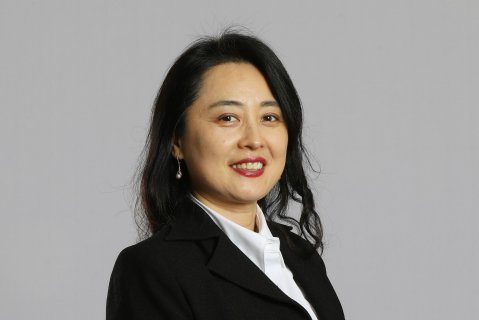SPAA Associate Professor Yahong Zhang Takes Aim at Corruption Through Research

Associate Professor Yahong Zhang is the resident expert on corruption research in the School of Public Affairs and Administration. Prior to 2013, Zhang’s research focused on city government policy-making, management, and leadership, but shifted to corruption studies when she became the director of Rutgers Institute on Anti-Corruption Studies, housed at SPAA. As director, she has promoted a widespread dialogue on corruption and anti-corruption research, provided recommendations and solutions on reducing corruption in public organizations, and trained students on conducting research in the field. We sat down with Zhang to discuss her priorities for the center and her perspective on public administration.
As director of the Rutgers Institute on Anti-Corruption Studies, how would you describe the institute’s primary purpose? How does the institute’s work influence the field of public administration?
RIACS is a platform for scholarly exchange among researchers and practitioners in the field of corruption and anti-corruption studies. Our primary purposes are to promote research in corruption, provide meaningful suggestions for government to reduce corruption, and train graduate students to develop research in that area.
The corruption issue by itself is important and government integrity is important, because these issues are associated with whether we can preserve fundamental values such as justice, equity, human rights, democracy, professionalism, etc. Our research is about whether the government can serve the public effectively and efficiently. It is about the legitimacy of the government and the public trust.
As a research center, we previously collected lots of educational information about anti-corruption efforts and created a repository of these resources on our website. We have invited well-known scholars and experienced practitioners to participate in our anti-corruption webinar series, and have invited students to collaborate on our research projects.
Before you became director of RIACS, your research was largely focused on city government management and leadership. What led to that shift in expertise?
My research interests shifted to corruption for two reasons. First, although corruption is a salient issue worldwide, there is inadequate research that has addressed the problem. I was interested in the topic and my expertise in research methodology enables me to conduct systematic investigations into this issue.
The second reason is that SPAA’s former dean Marc Holzer encouraged me to take leadership of RIACS when I was promoted to associate professor. Shifting research interests was quite challenging and risky because it takes time to cumulate knowledge in a new field and develop new academic networks. That means you may have to pause your publications for a while. However, it was the right time for me after my tenured promotion because the pressure to publish became relatively lower.
Can you tell us about a few of your current research projects?
I am currently working on a few corruption studies. The first one investigates how public employees’ intrinsic motivations and job related opportunities directly and indirectly shape their corruptibility—the propensity to engage in corrupt activities. This one received a revise-and-resubmit opportunity from Public Administration Review. The revised manuscript has been resubmitted.
The second project explores the extent to which corruption could be a rational choice based on cost and benefit assessment or driven by social values and norms. My coauthors and I presented our paper on this topic at the Sino-US conference in June, and are going to submit to a peer-reviewed journal very soon. Both projects are empirical and use large-scale survey data from public servants in China.
I am also working on a project on globalization of higher education with Lois Warner, a fellow faculty member, and one of our PhD students, Hanjin Mao. We’re conducting a comprehensive literature review on educating Asian students in public administration and other social sciences. The purpose of the research is to explore the question of how public administration programs can better accommodate Asian students while maintaining education quality.
What current trends are you noticing in public administration scholarship, and how have these trends shaped your research and teaching?
Public administration scholarship has a history of 130 years. In the past, there was a research focus, or trend, and those trends altered with the changing paradigms of the field. However, in recent years, the foci are not as obvious as they were 20 years ago. Scholars are contributing to the very diverse discipline with various topics, different theoretical perspectives – many adopted from other disciplines – and many evolving analytical tools in the digital era. Therefore, I would say diversity in topics, perspectives, and analytical methods may become a current trend in public administration scholarship. I think this is just an indication of the maturity of the discipline.
This trend of diversity has really made more resources accessible for research and it’s certainly expanded my research as I keep learning and trying new topics, new theories, and new methods. Also, as I’m teaching research methods to MPA and PhD students, I try to learn something new each year and incrementally update my syllabi in order to catch up with the new technology that is useful for research and direct students to useful data sources. The customized and interactive learning process has been helpful for students.
Despite the rapid changes in the field, what is unchanged is the commitment of researchers, which is to help government, through research, to improve performance by reforms, innovations, collaborations, motivations, etc., and to help government uphold its fundamental values.
